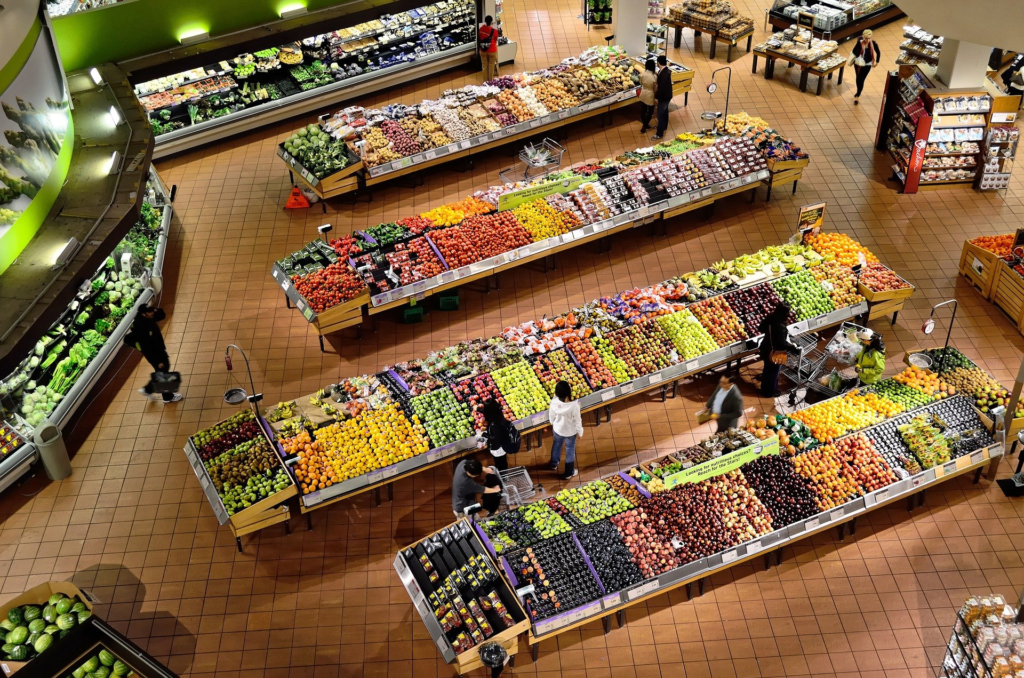Definition of a free market: a market in which buyers and sellers can transact with free choice, perfect information and without restriction.
What is a free market?
A free market is an abstract idea of how a marketplace would operate if both buyers and sellers were free to transact with:
- No transaction taxes
- No barriers to entry
- Both buyers and sellers have perfect information
- Many buyers and sellers
No real-life market place meets the purest definition, as all countries operate within a strict legal framework, with many regulations such as:
- Distance selling regulations
- Environmental regulations
- Requirements for employees to have specific qualifications or backgrounds
- Permits & planning permissions
However, the idea of a free market is still a useful one, as it represents one end of a real spectrum in which all modern marketplaces can be listed.
At the other end of this spectrum is a market described as a monopoly or monopsony (where there is only one seller or one buyer). In such a market, consumers or producers often have no feasible way to pick another party to transact with, and therefore the pricing mechanism breaks down.
You’ll encounter both terms; ‘free market’ and ‘monopoly’ in the best economics books under microeconomics chapters.

What is the advantage of a free market
The key advantage of a free market is that prices (known as the invisible hand of the markets) move freely and settle at equilibrium points which match supply with demand. This automatically achieves the ultimate aim of a marketplace which is to ensure the maximum utility is produced from trade.
When demand is high, prices will rise and this will encourage suppliers to increase production and enjoy economies of scale. This, in turn, will lead to a larger element of demand being satisfied.
When demand is lower than supply, prices will fall, which will encourage suppliers to produce less or withdraw from the market entirely. This naturally corrects the over-supply, and prices can return to a sustainable level at which the most efficient suppliers still return a reasonable profit.
Any investing courses or investing book on financial markets will also point out that free markets are incredibly efficient to run as the prices almost appear to magically appear out of thin air. A free market doesn’t need a central team to calculate what a fair price should be (such as they might in a command economy).
What are the drawbacks of a free market
Although a free market is an efficient way of matching buyers and sellers, a truly equitable outcome can only be achieved if all citizens have a reasonable sum of money.
In a world with poverty and unemployment, a free market mechanism may fail to put clothes on backs and food in stomachs.
This is because the free market pricing mechanism equates someone’s ‘need’ for a good, with their willingness to pay a high price for it. For market participants with reasonable wealth, this works very well. However what if some market participants have no money whatsoever? They cannot bid for any products at the market price, and their desperation for the product does not translate into them actually receiving it.
This is precisely why governments choose to encourage free markets but then operate a system of social security alongside, which distributes a minimum level of income to all citizens in need, to enable them to be able to participate in the marketplace.
Virtually all economists agree that this market interference is necessary to assure a minimum standard of quality of life for the poor and/or unemployed.
How does the definition of free markets relate to investing?
A good example of a relatively free market is the stock market itself. A stock market such as the London Stock Exchange, brings together many buyers and sellers, each who have wide access to information about companies and market prices, to buy shares.
Because stock markets are quite free, a lot of information is captured and conveyed in the market pricing. In such a way, a trusting investors could almost ignore the newswires themselves and merely look at the share price performance of a company to understand how it is performing.
This also applies when investing in commodities, purchasing corporate bonds or even investing in bitcoin.
Stock markets are not, however, perfectly free.
Investing taxes apply, such as stamp duty and stockbroker fees add further to investing costs. This slightly inhibits demand, as it artificially increases the price of shares which may put off an investor who was otherwise happy to buy at the underlying share price.